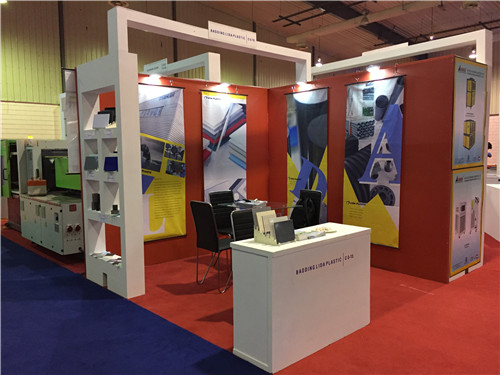Nov . 30, 2024 23:50 Back to list
Effective Use of PVC Irrigation Pipes for Efficient Water Management
Understanding the Benefits and Applications of PVC Irrigation Pipes
Irrigation plays a crucial role in modern agriculture, particularly in regions where water availability is limited or inconsistent. One of the most significant developments in irrigation technology has been the use of PVC (Polyvinyl Chloride) pipes. These pipes offer a robust and efficient solution for transporting water to crops, ensuring optimal growth and productivity. In this article, we will explore the advantages of PVC irrigation pipes and their applications in agricultural practices.
The Composition and Properties of PVC
PVC is a widely used synthetic plastic polymer composed of vinyl chloride monomers. It is characterized by its light weight, durability, and resistance to chemicals and corrosion. These properties make PVC an excellent choice for irrigation systems. Unlike metal pipes, which can rust and corrode over time, PVC pipes maintain their integrity under various environmental conditions, ensuring a longer lifespan and reduced maintenance costs.
Advantages of PVC Irrigation Pipes
1. Cost-Effectiveness One of the primary advantages of PVC pipes is their cost-effectiveness. They are generally less expensive than metal alternatives, making them an attractive option for farmers, especially those operating on tight budgets. The savings on materials can be directed towards other critical agricultural needs.
2. Lightweight and Easy to Handle PVC pipes are significantly lighter than traditional materials, which facilitates easier transport and installation. Farmers can handle these pipes without heavy machinery, which is particularly beneficial in remote or undeveloped areas where access to equipment is limited.
3. Corrosion and Chemical Resistance Agriculture often involves exposure to a variety of chemicals, including fertilizers and pesticides. PVC pipes are resistant to these substances, which minimizes the risk of degradation and leaks. This resistance ensures that water remains uncontaminated as it travels through the irrigation system.
4. Flexibility in Design PVC pipes can be assembled in various configurations to meet the specific needs of different agricultural setups. Whether implementing a surface, sprinkler, or drip irrigation system, PVC pipes can be adapted to achieve optimal water distribution.
pvc irrigation pipe

5. Low Friction Loss The smooth interior surface of PVC pipes results in lower friction losses. This means that water can be transported more efficiently over long distances, reducing energy costs associated with pumping water. Efficient water delivery is essential for maximizing irrigation effectiveness.
6. Environmental Impact PVC is recyclable, contributing to sustainability in agricultural practices. Farmers can recycle old PVC pipes, reducing waste and promoting a circular economy in the farming sector.
Applications of PVC Irrigation Pipes
PVC irrigation pipes find a diverse range of applications in agriculture. Their versatility makes them suitable for various irrigation methods including
- Drip Irrigation In drip irrigation systems, PVC pipes are used to transport water directly to plant roots. This method minimizes water wastage and ensures that crops receive adequate moisture, especially in arid regions.
- Sprinkler Systems PVC pipes are commonly employed in sprinkler irrigation systems, allowing for uniform water distribution across large fields. With the ability to cover extensive areas, these systems are ideal for both large-scale farms and smaller gardens.
- Surface Irrigation Farmers can utilize PVC pipes to create surface irrigation systems, channeling water effectively to different parts of a farm. This straightforward method is particularly effective in flood-prone areas where water management is critical.
Conclusion
In conclusion, PVC irrigation pipes represent a revolutionary advancement in agricultural practices. Their durability, cost-effectiveness, and adaptability make them a preferred choice for farmers seeking efficient water management solutions. As global agricultural challenges intensify, particularly with water scarcity, adopting technologies such as PVC irrigation pipes will play a vital role in fostering sustainable practices and enhancing food production. By understanding the benefits and applications of these pipes, farmers can make informed decisions that lead to healthier crops and more efficient resource management.
-
High-Quality PPR Pipes and Fittings Durable ERA PPR & PVC PPR Solutions
NewsJul.08,2025
-
Black HDPE Cutting Board - Durable, Non-Porous & Food Safe HDPE Plastic Cutting Board
NewsJul.08,2025
-
High-Quality CPVC Panel Durable HDPE & PVC Panels Supplier
NewsJul.08,2025
-
Double PE Welding Rod Supplier - High Strength, Durable & Versatile Welding Solutions
NewsJul.07,2025
-
High-Quality PVC-O Pipe Supplier Durable 75mm PVC Pipe & Connections Leading PVC Pipe Company
NewsJul.07,2025
-
HDPE Drainage Pipe Supplier – Durable & Corrosion-Resistant Solutions
NewsJul.06,2025

